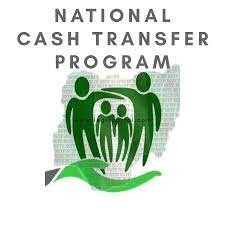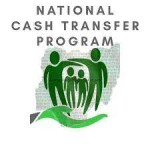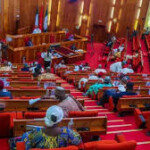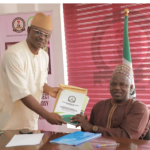As the federal government begins its somersault on the fuel subsidy removal palliative policy, figures are already flying about. Nobody can guarantee their accuracy, though.
This opacity, intended or not, creates loopholes that make it generally impossible for policies to hold water. And in circumstances like this, some Civil Society Organisations readily creep in, with their own figures and agenda, and further fudge the little remaining for anyone to make sense of.
Nigerians then find themselves at a loss.
Before he changed his mind July 18, President Bola Tinubu had said 12 million vulnerable households would receive N8000 the former administration intended to transfer conditionally. As of 2021, then President Muhammadu Buhari claimed the social register had 7 million households which add up to 32 million Nigerians registered. More than one and a half million of the households had 8 million people receiving N5000 monthly. The National Social Safety Nets Coordinating Office (NASSCO) that same year, however, had its own figure: 5.7 million beneficiaries.
Because figures matter even if they hardly stack up, the Bretton Woods Twins, monitoring the development and lending Nigeria millions of dollars, were curating their own. They have to. Days ago, the World Bank released its own report, stating about 19 percent of Nigerians benefitted from the cash transfer scheme in six years. In actual figure, out of the more than 80 million Nigerians in multidimensional poverty(according to the NBS) and over 53 million more tottering a blink away on the precipice, only about 40 million got the cash.
Now Tinubu initially took over the plan to up the ante and the number of beneficiaries to N8000 monthly and 12 million households and over 60 million Nigerians. Critics think the poorest of the poor don’t need the relief in this hard time when inflation pushes 23 percent. A review of the policy will soon determine which way to go.
What, however, bothers ER is the likely exclusion of PWDs from the beneficiaries-if the government shrugs off the elitist ranting, and goes on with the cash transfer. And how it will take a lot of gall to blame the government for it.
According to NASSCO, based on its own social register figure, there are over 270,000 people with disabilities (about five percent of those captured) on the register. Some disability advocates have already flared up, claiming PWDs haven’t benefitted from the cash transfer since 2016. It may not be exactly so. The ground the CSOs base their conclusions on is weak. And their generalizations sound more like navel-gazing.
A CSO’s survey, for instance, of 40 people in Kano, Kaduna, Jigawa, and Zamfara is not representative enough. Kano alone has more than 1.5 million PWDs. For the NGO to have concluded that over 30 million PWDs spread across 36 states and the FCT are not aware of the cash transfer policy, let alone participate, is not scientific. If anything, the conclusion, hasty and exaggerated, further obscures the truth since it cannot withstand any statistical rigour.
In a country that takes warehousing development data with levity, all these over-reaching and ambiguities have to come into play. It speaks to the failure of institutions. The National Commission for People With Disabilities have not been able to set up a database for disability management in Nigeria since 2019, despite the express provision for it in the Discrimination Act. All of the state disability commissions, including the Lagos Office for Disability Affairs, which have legislative provisions for databases, have also failed.
The blind policymaking and planning that results from this failure could be truly alarming. But rather than exploit the rudderless situation to cry wolf at every campaign, rights advocates and disability NGOs monitoring the social register and cash transfers to the vulnerable, especially those with disabilities, can take a new approach. They can motivate the community to register first, and monitor how accessible and inclusive the registration goes. After all, the Discrimination Act 2018 gives PWDs precedence in situations like this.
According to Section 27:
If accommodation is being provided by schools for the students, employers for their employees, service providers for their customers, organisations for their members, government for the people, and in any other circumstance whatsoever, person with disabilities shall be given first consideration.
For PWDs to kick back and whine while others take advantage of government policies is to accept the cultural tag of “disabled and vulnerable Nigerians”. To expect and cheer on advocates that bandy around percentages they pluck from the thin air to allege discrimination is no better either.
Action matters. It verifies claims and counter-claims. It makes policy implementation more involving in a society dillydallying to admit disability is a matter of diversity—not debility.






